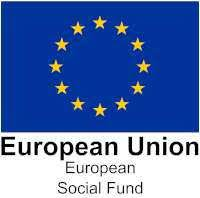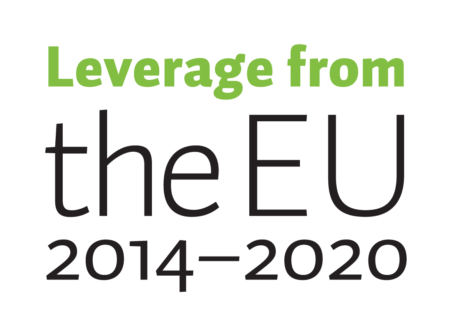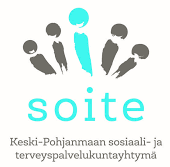

LUmOaVA – Creative know-how
This project is searching for new functional models to improve the functional capacity of individuals who are in the weakest labour market position, as well as new ways for them to identify their skills and capabilities.
Branch: Entrepreneurship and business
Duration: 01.08.2017 – 31.03.2020
Region: Central Ostrobothnia
Financed by: European Social Fund
Project Manager: Minna Koivula
Background
The LUmOaVA project is searching for new functional models to improve the functional capacity of individuals who are in the weakest labour market position, as well as new ways for them to identify their skills and capabilities. The project focuses on social rehabilitation, creative methods and service design, using a simulation environment. The project participants will be encouraged to use creative approaches during the meetings to recognize their own strengths. This project aims at creating a new art-based method as a tool for increasing social skills: building a live portfolio, becoming aware of one’s abilities and bringing them forwards.
The project focus
The project focuses specifically on young people with little or no work experience and the elderly population who have not worked for a long time. However, representatives of different age groups, from young to senior, including middle-aged people, may be regarded as the target group of this project to make sure the community involvement is as comprehensive as possible. The development work for this project will be carried out in Kokkola area, in cooperation with the customers of the involved partners and utilizing the customers’ experience data. The target group will participate in customer-oriented workshops within the area covered by the Central Ostrobothnia Social and Health Services Authority in Soite. The actual venues will be determined following the customers’ requests. The project also intends to increase the interaction between immigrants and the local population, which will take place through applying the mixed-group work model.The project focuses specifically on young people with little or no work experience and the elderly population who have not worked for a long time. However, representatives of different age groups, from young to senior, including middle-aged people, may be regarded as the target group of this project to make sure the community involvement is as comprehensive as possible. The development work for this project will be carried out in Kokkola area, in cooperation with the customers of the involved partners and utilising the customers’ experience data. The target group will participate in customer-oriented workshops within the area covered by the Central Ostrobothnia Social and Health Services Authority in Soite. The actual venues will be determined following the customers’ requests. The project also intends to increase the interaction between immigrants and the local population, which will take place through applying the mixed-group work model.The project’s cooperation network includes third sector operators. With their cooperation, this project will investigate the customer journeys to identify social contacts low thresholds and strengthen the self-esteem of the relevant groups. The services and operating environment of the participants from the collaboration network will be used as pilot platforms for involvement in low threshold activities. Volunteering services provided by the cooperation club Silta will serve as an excellent example for this purpose.
The concept of service guidance will be reviewed and updated to better serve the most vulnerable people in the labour market better. The service counselling aims at finding the customer’s resources and at identifying the service needs. For developing service guidance will make use of, service simulation may be used in this project, making the respective aspects more visible, and the pilot teams may create common development models promoting new types of encounters.This implementation of this project will be coordinated in collaboration with the Osana project, which is carried out by the Central Ostrobothnia Adult Education Centre focusing on employment of immigrants. Also, networking with other operators in the region will be developed via the Sokra project. Collaboration with the customer group is expected to result in finding personalised customer journeys through the use creative methods and elements emerging from the service design. The project will include working close together with educational organisations, employment services and civic activities with the aim to integrate the project into the activities of Central Ostrobothnia’s social and health service group in the Soite area. The networking should allow finding new solutions to attract the target audience via subsidised civil actions, which will be a step further towards self-initiated activities of them. Participants will take part in supported meetings and experiments. The objective of the project is to find resources for enabling the people in the target group felt more valuable and encouraged to participate in the community’s life. For example, workshops will be organized to promote elaborating of the Living portfolio, a diversified art-based model that helps raise people’s awareness and self- confidence about their skills. The partner networks will enable to form different development customer groups, which will invent and create Live portfolios. The most vulnerable groups in the labour market will be targeted through the actual experimentations and the final determination of the methodology. The methodology will then be documented and distributed through implementation activities and operation seminars organized by the project partners for the other local partners.
This project aims at making its activities a part of the working methodology used by Soite. Outreach social work techniques will be applied and developed by focusing on the target groups. The social education content at Centria University of Applied Sciences will be designed, mainly addressing the matters of social rehabilitation. The content should then also comply better with the Social Welfare Act through cooperation between the project staff and different functions, such as tuition, working life balance, customer service etc. The Live portfolio content created under this project will be tested according to the rapid experimentation methodology, with Centria’s working life partners participating via the currently existing network of training agreements. The use of common development model and the accelerated experimentation methodology will enable to establish the joint development model within the collaboration between Centria’s social services teachers, students and social rehabilitation centres. Thus, this project will ensure that the future social services professionals will have access to a diverse art-based approach, which may take root in the practical work.
In cooperation

Sanna-Kaisa Karvonen